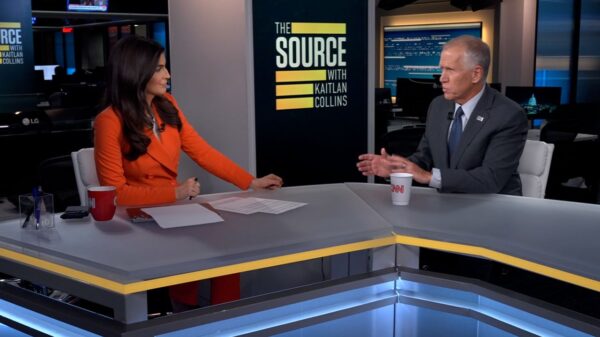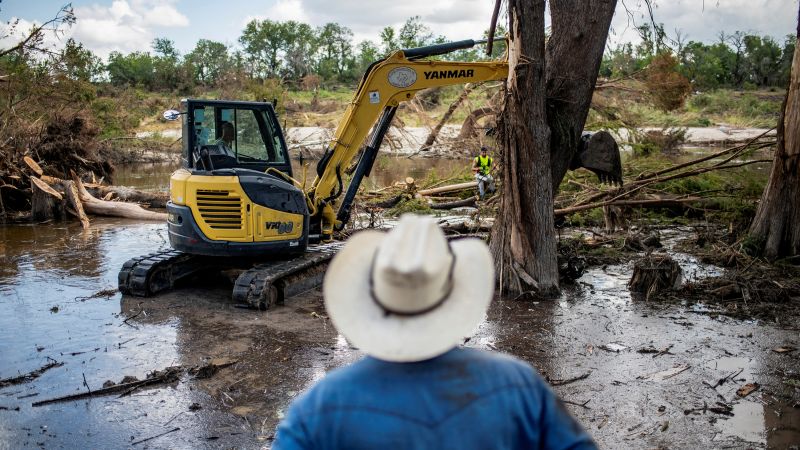Commissioners in Kerr County, Texas, are convening on July 10, 2023, for their first official court meeting since catastrophic flooding claimed the lives of at least 106 individuals, including 36 children, during the early hours of July 4. The meeting will address the devastating impacts of the flooding and the ongoing recovery efforts as the community grapples with the aftermath.
Focus on Recovery and Aid
The primary item on the agenda includes an update on recovery efforts following the July 4 flooding. The commissioners will “consider, discuss, and take appropriate action” regarding the status of these efforts, as outlined in the meeting agenda. Additional discussions will cover authorizing overtime pay for emergency response employees and establishing a central location to assist those affected by the flood.
The Kerr County commissioners’ court, led by County Judge Rob Kelly and four commissioners, is the main governing body for the county, which has a population of approximately 50,000. This meeting comes in the wake of severe flooding that transformed the Guadalupe River into a torrent, resulting in significant destruction across the region. Homes, vehicles, roads, and trees were swept away, leaving a lasting impact on the community.
In addition to the devastation, the community remains concerned about the potential for further flooding. Thunderstorms and heavy rain on July 9 raised new alarms about flash flooding risks. Search operations in Kerrville were temporarily suspended due to these ongoing dangers, though they later resumed as conditions improved.
FEMA’s Response Under Scrutiny
As search and rescue efforts continue, the response from the Federal Emergency Management Agency (FEMA) has drawn scrutiny. Reports suggest that multiple urban search and rescue teams were not deployed until the evening of July 7, days after the floodwaters had receded and no victims were found alive. In previous emergencies, FEMA typically positioned teams in anticipation of immediate requests for assistance.
Officials within FEMA have expressed frustration over new bureaucratic hurdles that delayed their response during this crisis. A recent policy requiring Department of Homeland Security Secretary Kristi Noem to sign off on relatively small expenditures has been cited as a contributing factor to the slow reaction time. According to insiders, this rule created unnecessary delays when swift action was critical.
FEMA staff have also been managing calls at a disaster assistance center, where long wait times have been reported. The agency did not answer nearly two-thirds of calls to its assistance line two days after the flooding, raising concerns about its preparedness and capacity to respond to a surge in inquiries.
“When a natural disaster strikes, phone calls surge, and wait times can subsequently increase,” a FEMA spokesperson stated, addressing the reported issues.
In defense of the agency’s performance, Secretary Noem asserted on NBC’s “Meet the Press” that resources were deployed rapidly following the flooding. “Those claims are absolutely false. Within just an hour or two after the flooding, we had resources from the Department of Homeland Security there helping those individuals in Texas,” she said.
Adding to the tragedy, Camp Mystic, an all-girls Christian camp located along the flood-prone area of the Guadalupe River, experienced significant loss, with 27 campers and counselors swept away by the floods. An investigation by The Associated Press highlighted that federal regulators had repeatedly approved appeals to remove the camp’s buildings from the 100-year flood map, thereby reducing oversight as the camp expanded in a hazardous location.
As the community mourns, makeshift memorials have begun to appear in downtown Kerrville. A growing collection of flowers, stuffed animals, and photographs offers a poignant tribute to the victims. One touching message read, “Beautiful angels, fly high. Until we meet again, may you rest in peace.”
The upcoming meeting of the Kerr County commissioners represents a critical step in the recovery process for a community grappling with profound loss and the urgent need for effective support and rebuilding efforts.





































































